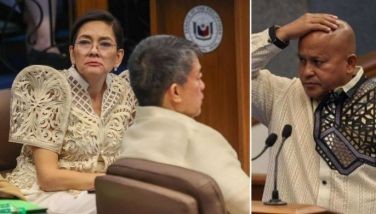Why De La Hoya’s fighting again
“I miss being in the ring, I love boxing. Boxing is what gave me everything I have today, and I just miss it.”
That is what Olympic gold medalist and multiple world champion Oscar De La Hoya told media over the weekend, announcing a return to the ring on July 3. The first boxer in history to win world titles in six weight classes, De La Hoya hung up his gloves in 2009, after an embarrassing defeat at the hands of Manny Pacquiao. So why come back now?
“His career ended on a low note. Time for a rewrite. Like it or not, De La Hoya knows his pride allowed him to be foolishly goaded into a mismatch with Manny Pacquiao back in 2008. Pacquiao was on the rise and had won eight in a row, five by knockout. Ignoring chides from American media as well as a recurring rotator cuff irritation, Oscar went down to a weight he had not fought at in six years. Pacquiao was too young, too strong, too fast. De La Hoya avoided a KO by surrendering, then retired a few months later. A win, any win, even now, will salve his ego, and add a positive footnote to his otherwise sterling record.
There’s money to be made. If De La Hoya does get his wish and tempts cash-mad Floyd Mayweather Jr. out of his nth retirement, there’s an overriding reason for it: money. With much of the world going back into lockdown, many sports fans are getting nostalgic. The bulk of the general sports audience has also shifted to remote spectating. When Golden Boy first fought Floyd in May of 2007, the event was the most lucrative of the time (earning at least $150 million), even though De La Hoya lost by split decision. The rematch never happened because of one of Mayweather’s multiple retirements. Besides, if Oscar just wants to box for fun, why not do it and get paid? The numbers will definitely not be astronomical, but tens of millions of dollars seems like a lot more when the rest of the world can’t earn a living.
“There’s a demand for content. Billions of people are stuck at home, including everyone below 18 and over 65 in many places. People are scraping to make their money online now. Combine this with the limited available sports content, and there’s an opportunity to earn more than you normally would. Even if the response isn’t rabid, even if too much time has passed, there are still more people buying online than ever before. It may be a small slice, but of a much bigger pie.
New markets beckon. Before the pandemic, boxing was growing in so many places: opened Communist countries, the Middle East, Africa, smaller countries in Europe, India, China, the rest of Asia. Mayweather himself acknowledged the buying power of Japan by fighting there on a New Year’s Eve. Except for the problematic time difference with Europe, De La Hoya can tap into the innocent curiosity of many markets still unfamiliar with how long he’s been away from the ring. The late Marvelous Marvin Hagler became an action movie hero in Italy, and many American athletes have endorsement contracts in China and Japan.
Boxers can’t walk away. Ah, the plague of all pugilists. Very, very few professional fighters can truly walk away from the game at the best time. It’s simply too big a void to fill with something else. The extreme focus, pushing one’s self to the edge of death, the adrenaline rush, the adulation. The rich jock lifestyle. What on earth could possibly replace it? Boxers are acutely aware of their diminishing abilities, the killer edge that is dulled with age. Yet, they crave the ring. It’s the one thing that gives them purpose. There is an attachment, an addiction, an enabling, and an ego. Name the champion, and he is more than likely to have fallen to the siren call to return to the squared circle, despite obvious decline. Oscar De La Hoya is no different.
- Latest
- Trending



































